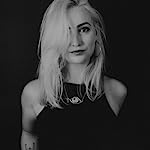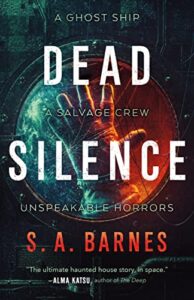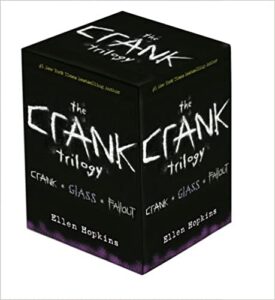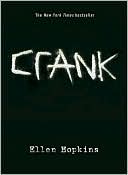CJ Leede is the author of Maeve Fly.
Buy Maeve Fly: Bookshop.org
David: Maeve Fly is an amazingly cool novel. It seems to flirt with comparisons before veering off into its own happy world. It can’t be pigeon-holed, which is always a great thing to me. What was the inspiration for this debut?
CJ: Oh man, thank you! Well, I was in a strange dark period in life, and I had just moved to LA and was regretting it, struggling with some grief and life things– you know, some time periods are just like that–and it was Covid, and it was pre-election, and everything just felt so ramped up and overwhelming. I didn’t really intend at first to do any of this, the initial idea was really just about Story of the Eye and whether a woman could retell it. What it would look like with a female protagonist. And then everything just spun out (very quickly!) from there. It’s kind of an annoying thing to say, but it was like a hatch in my skull opened, and it all just came to me suddenly. I just had to write it.
David: A female killer–this can be done well, or botched completely. As a psychologist/psych instructor, I’m getting strong sociopath vs. psychopath vibes, but neither truly fit. Maeve handles her job well, but the rest? Are you a fan of studying killers, specifically women?
CJ: I love hearing you say this. I went through a phase of being obsessed with serial killers when I was younger (did we all?), but to be honest I have trouble sleeping at night sometimes as is, so it’s less my thing these days. But in terms of Maeve’s psychology, I do LOVE books on things like that. The Wisdom of Psychopaths, The Psychopath Test. I find it so fascinating that the same people who might hurt and destroy in the worst ways might also, with a different upbringing or set of circumstances, become our political leaders, surgeons, or corporation heads. If I had to categorize Maeve, I’d say she’s way more of a sociopath as well, but I’m happy to hear you (as the expert!) say she doesn’t totally fit either. While I love all that, I really wanted this book to be about something different, or for her not to be pigeonholed. I had a professor once talking about Joan of Arc and her visions, the fact that she might be diagnosed or categorized as a schizophrenic now. And then he said, but there’s really no difference. We use certain terms to categorize, but either way, she was seeing and speaking with angels and demons. They can both be true. In terms of Maeve, she is who she is. But her loyalty (her own brand of it) is definitely the guiding light.
David: I absolutely love the setting (at least for Maeve’s job). What a juxtaposition of character angles, or is it? What prompted you to place her in the happiest place… in Los Angeles?
CJ: I’m so glad! I visited the *theme park in Anaheim* one time before writing this book, and it all really just stuck with me. I’ve always liked it, maybe never loved, but never disliked either. But spending time really looking at it and learning about it was so fun. I’m now a big fan!
David: Speaking of L.A., you nailed both the mystique and gritty feel of the city well. What brought you there from New York? What’s the allure, both personally and in writing?
CJ: I came here primarily for what was outside the city. I’m a nature girl, and the scale is so much bigger out here. The forests, deserts, mountains, cities, cliffs, and ocean. It’s just all so sprawling and massive and calls to a very strong part of me. But just like the Park, in the process of writing this book, I fell so deeply in love with this city too. It’s so imperfect, so polarizing, and I really love that about it. There’s a lot not to love, but I think that’s a lot of the charm. Also, name a city that does themed bars as well as LA!
David: Other than the titular character, who else stands out as someone you might want to hang with in the novel?
CJ: I mean, maybe the younger cop. We love to see a Halloween lover! And of course, Lester the Cat.
David: Back to basics – how did your writing evolve? Short stories? Disturbing comics? Traumatizing elementary school teachers with twisted doodles?
CJ: In my last semester of undergrad I took a creative writing course and realized I loved it. I thought I was going down a different path, but the writing took hold, and I couldn’t let it go. I applied to grad school a few times and then finally got in, and that was where I learned that my writing was really all horror. And it’s all just gone from there! Maeve is the third book I’ve written, and we’ll see if the other two ever see the light of day!
David: What authors lit your creative fire? Which ones currently stoke it?
CJ: Ahh so many! Scott Hawkins, Stephen King, Joe Hill, Jean Auel, Anne Rice, Margaret Atwood, Joe Haldeman, Robert Heinlein, Stephen Graham Jones, Grady Hendrix, Nabokov, Emily Bronte, Thomas Harris, Sayaka Murata, Italo Calvino, John Scalzi, Neil Gaiman, Virginia Woolf, Bret Easton Ellis, the list goes on!
David: Favorite novel and why?
CJ: OMG I have to pick ONE?! I really can’t! But I do read Library at Mount Char again and again. And also so many others by a lot of the writers I listed above.
David: Are you new to the writing conference scene? If so, are you stoked for Stokercon? It’s a tradition for new authors to buy interviewers/reviewers a drink, by the way. Either that or a book – we’re not picky!
CJ: Brand new! Very stoked. Noted on the drink, you’re on!
David: I’ve read you have two more novels set to roll in the future. Is there anything you can tell us about either one?
CJ: The second book is unrelated to Maeve but deals with a lot of the same themes in a VERY different setting. Then I am working on two books simultaneously, and I suppose the *powers that be* will decide which of them will come out after that. I’m very, very excited for all of them though.
David: A degree in mythology and middle ages? What’s the chance either will figure into a future novel? Mythology is such a great launching point for characters, creatures, and the heroine’s journey.
CJ: Big chance! Outside of Maeve’s world, I’m very interested in writing things leaning more supernatural, historical, scifi, and fantasy within the horror genre. And probably with romance in there most of the time, because why not?!
David: When you’re not gallivanting across the country with the fur plus one family, what are your other passions/hobbies?
CJ: I love running and hiking, oddity hunting, reading and learning about anything I can. We do the senior/special rescue dog thing, and occasionally foster as well. I love going to hear live music, and when I can pry myself away from social media (her grasp is strong!), I love flipping back and forth between different languages on duolingo in free moments, just to kind of keep my brain sharp– or try to! But mostly, I’m an outdoor girl, and I like being really physically active. It’s how I do all my best thinking! And I’ve dabbled in MtG too. I always love it but need to get a lot better to play for real!
David: Finally, as a writer, I’m asked constantly for advice. As a debut author, what nuggets of dark wisdom would you feed to aspiring writers?
CJ: Just write your shit. Don’t worry about the market or what will sell or won’t sell or what will upset your family or your partner or that one person who said that one thing ten years ago that you still think about. Writing and creative expression are the safest spaces that exist. You can decide later if you want to share it or send it out into the world, and most likely the more authentic your work, the more the world will love it anyway!
David: Thanks for answering these! Monster Librarian and our readers thank you plenty!
Wishing you a great year of success with Maeve Fly !










Follow Us!